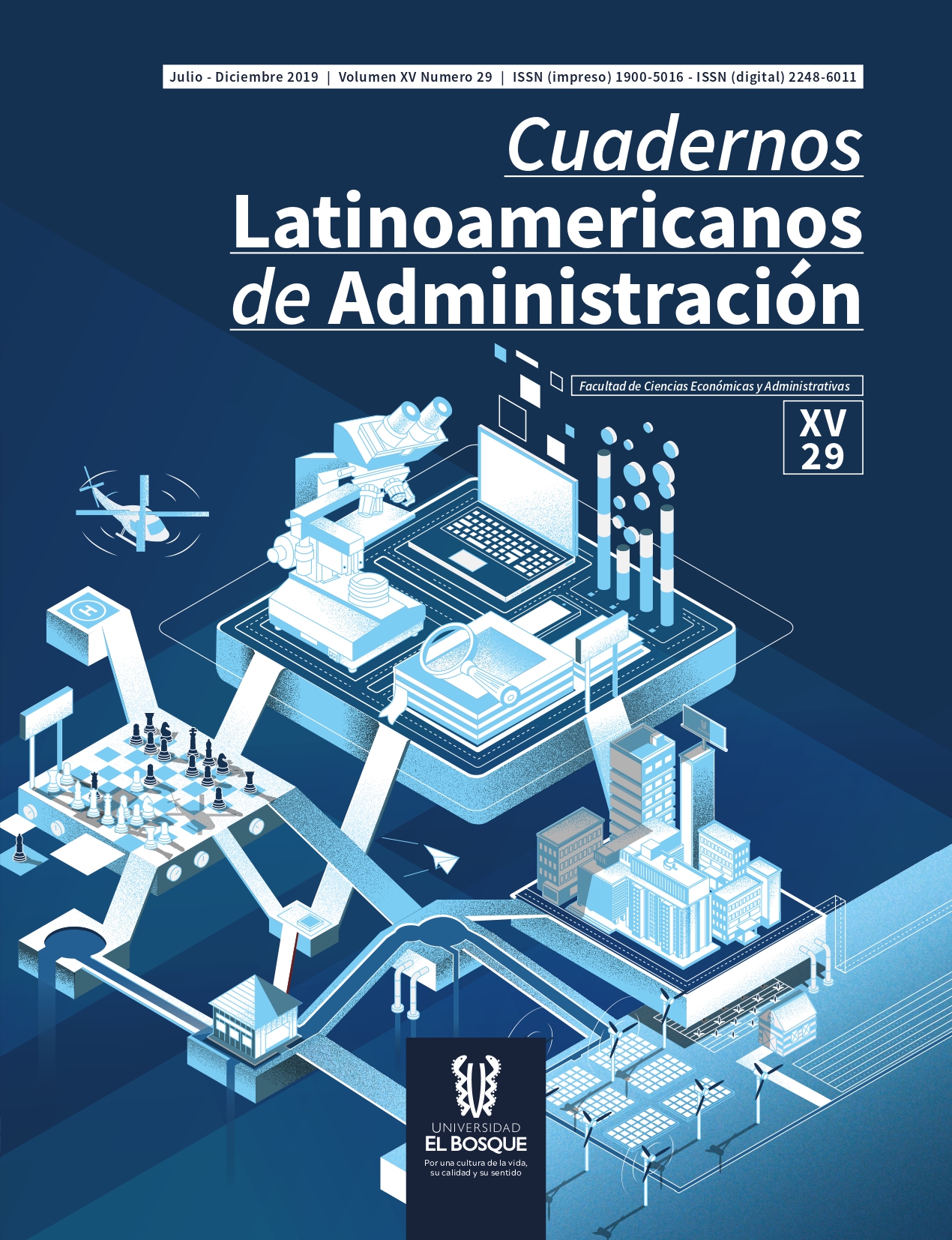Improvement plan for the traceability system of medicines in Cuba
DOI:
https://doi.org/10.18270/cuaderlam.v15i29.2858Keywords:
Coding System, GS1 International Standards, Traceability System, Traceability PlanAbstract
Traceability consists of systematically associating a flow of information with a physical flow of goods so that the required information relative to the specific groups or groups of products can be rediscounted at a specific moment. The health sector is by nature a global sector that has supply chains that cross borders, but at the same time, the health sector is very local, which is why the implementation of global, open and tested standards allows systems of effective and efficient traceability around the world. The study that is carried out is in the Cuban health sector, in the medicine supply chain, and its general objective is to propose a traceability plan that will improve the existing deficiencies in the Drug Traceability System in Cuba. The diagnosis of the traceability system is made and 17 problems are obtained. That is why a solution proposal is made through the design of a Traceability Plan. Techniques and tools such as bibliographic analysis, interview, Pareto diagrams, flow diagrams and others were used. Minitab 16, Microsoft Excel and Visio softwares were used.
Downloads
References
Agencia española de seguridad alimentaria. (2005). Trazabilidad y seguridad alimentaria su aplicación en la empresa alimentaria papel del control oficial. Madrid: Ministerio de Sanidad y Consumo.
Agencia española de seguridad alimentaria y nutrición. (2004). Guía para la Trazabilidad en la empresa agroalimentaria. Madrid: Artes gráficas Palermo, S. L.
Boletín Electrónico de Salud, Comercio ilegal de medicamentos, un peligro mortal para la salud. 2010; Available from: http://boletinseps.blogspot.com/2010/02/comercio-ilegal-de-medicamentos-un.html.
Castillo, B., & De la Nuez, R. (2001). Resolución Conjunta MINCIN/MINCEX. 2001. Cuba.
CECMED. (2019). Reglamento para la Vigilancia de Productos Farmacéuticos de Uso Humano durante la Comercialización. Resolución 69/2019. Cuba.
CECMED. (2012). Resolución 11/2012. Cuba.
Contraloría General de La República de Cuba. (CGR). (2011). Normas de control interno. Resolución No.60/2011.
Cuesta, A. (2010). Tecnología de Gestión de Recursos Humanos. La Habana (Cuba): Editorial Academia/Editorial Félix Varela.
Denert, E. (2008). Enterprise Architecture Management Pattern Catalog. München, Germany: sebis, Technische Universität München.
GS1. Argentina. (2005). Trazabilidad. Implementación de Trazabilidad EAN-UCC. Proyecto TRACE-I. Buenos Aires: Erie García.
Khan, S., Haleem, A., Khan, M. I., Abidi, M. H., and Al-Ahmari, A. (2018. Implementing Traceability Systems in Specific Supply Chain Management (SCM) through Critical Success Factors (CSFs). En In Journal Sustainability: 10 (204), p. 1-26; doi:10.3390/su10010204.https://doi.org/10.3390/su10010204.
Kumar, V., Agrawal, T.K., Wang, L., Chen, Y. (2017). In Textiles and Clothing Sustainability: 3(5), p. 1-10; https://doi.org/10.1186/s40689-017-0027-8.
Lopes, I., Gómez, M. I. (2013). Auditoría logística para evaluar el nivel de gestión de inventarios en empresas. En revista de Ingeniería Industrial, vol. XXXIV, núm. 1, enero-abril, p. 108-118.
Llano, N. (2010). Construcción del Plan de Trazabilidad en las diferentes Líneas (Recepción) manejadas por AVINCO S.A. Tesis: Corporación Universitarias Lasallista, en Caldas (Antioquia, Colombia).
Marconi, M., Marilungo, E., Papetti, A., & Germani, M. (2017). Traceability as a means to investigate supply chain sustainability: the real case of a leather shoe supply chain. In International Journal of Production Research: 55(22): p. 6638-6652. https://doi.org/10.1080/00207543.2017.1332437.
Ministerio de Finanzas y Precios de Cuba (MFP). (2007). Resolución 11/2007. Cuba.
Oficina Nacional de Estadística e Información (ONEI). (2017). Resolución 49/2017 Clasificador de Productos de Cuba (CPCU). Versión 2.0. Resolución 49/2017.
Organización Mundial de la Salud. (2010) La falsificación de medicamentos: una amenaza creciente. Boletín de la Organización Mundial de la Salud, vol. 88: p. 241-320.
QUIMEFA. (2008). Uso de los estándares GS1 para la mejora del sistema de trazabilidad de medicamentos en un Operador Logístico 3PL. Resolución 117/2008. Cuba.
World Health Organization (WHO). (2017). A study on the Public Health and Socieconomic Impact of substandard and falsified medical products. Geneva:WHO/EMP/RHT/2017.02. Licence: CC BY-NC-SA 3.0 IGO.
World Health Organization. (2017). Global Surveillance and Monitoring System for Substandard and Falsified Medical Products. Geneva: WHO. Licence: CC BY-NC-SA 3.0 IGO.
Downloads
Published
How to Cite
Issue
Section
License
The authors when they send their articles for evaluation certify originality and transfer the proprietary rights to the Journal
Latin American notebooks Administration, University El Bosque, for dissemination in print and / or electronic. But scientific evidence, originality, content of the documents are the exclusive and sole responsibility of the authors.

| Article metrics | |
|---|---|
| Abstract views | |
| Galley vies | |
| PDF Views | |
| HTML views | |
| Other views | |












